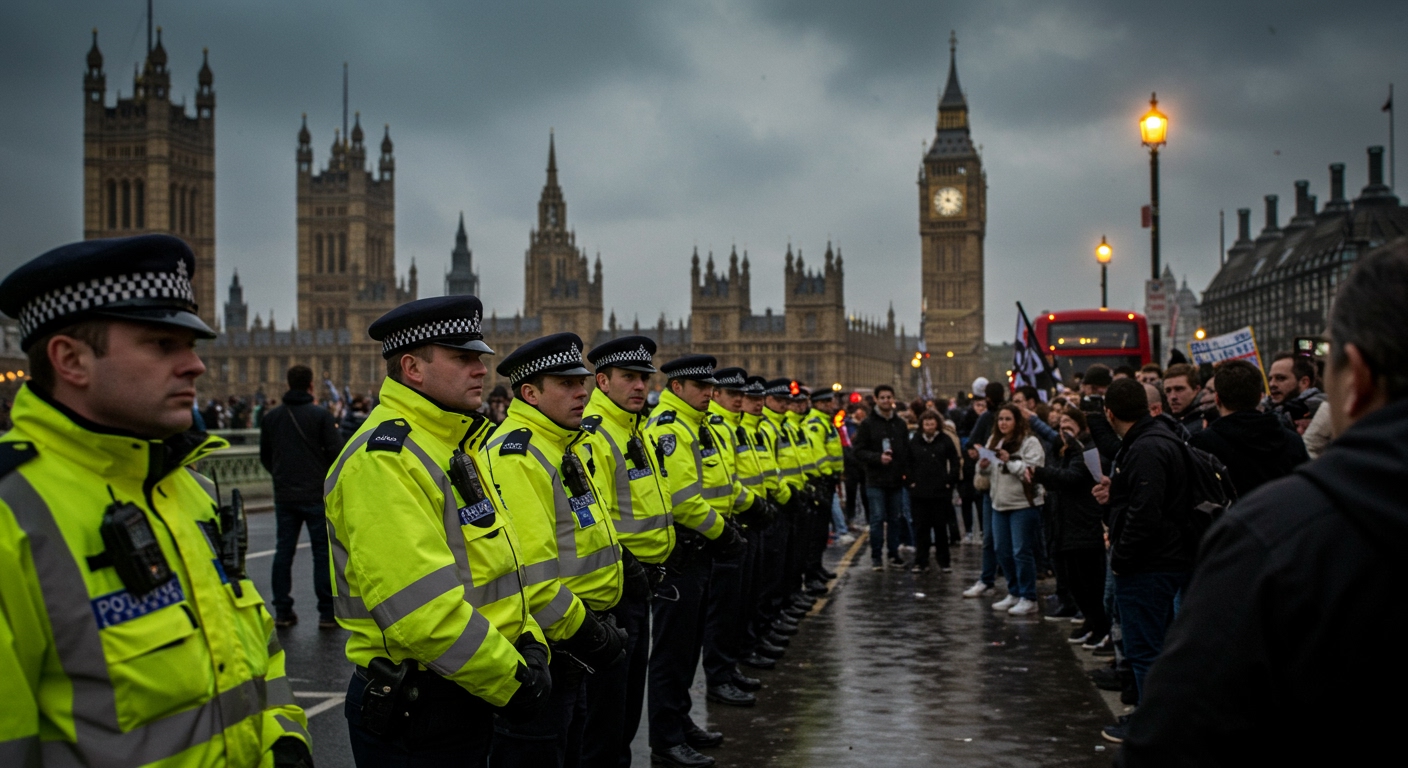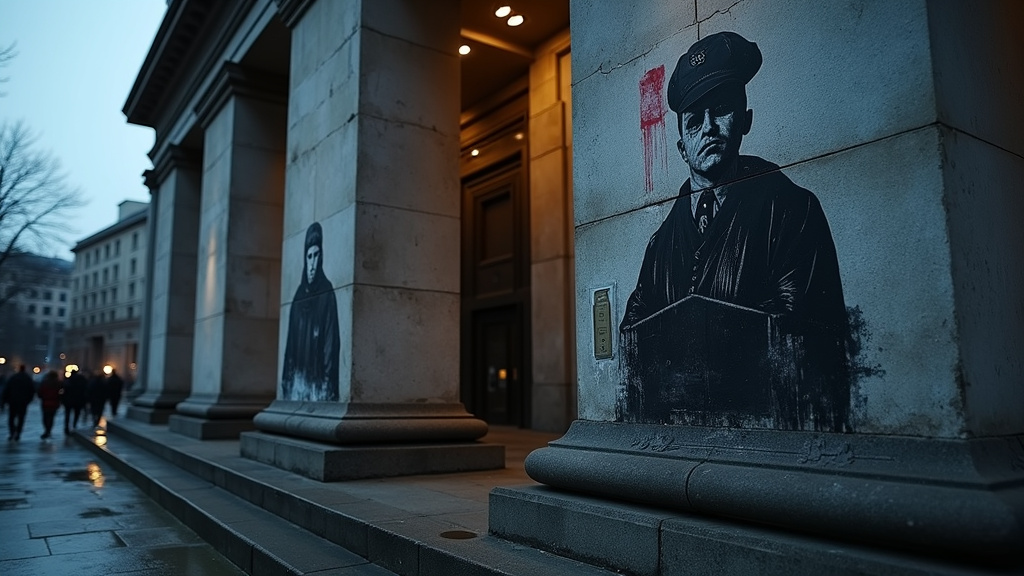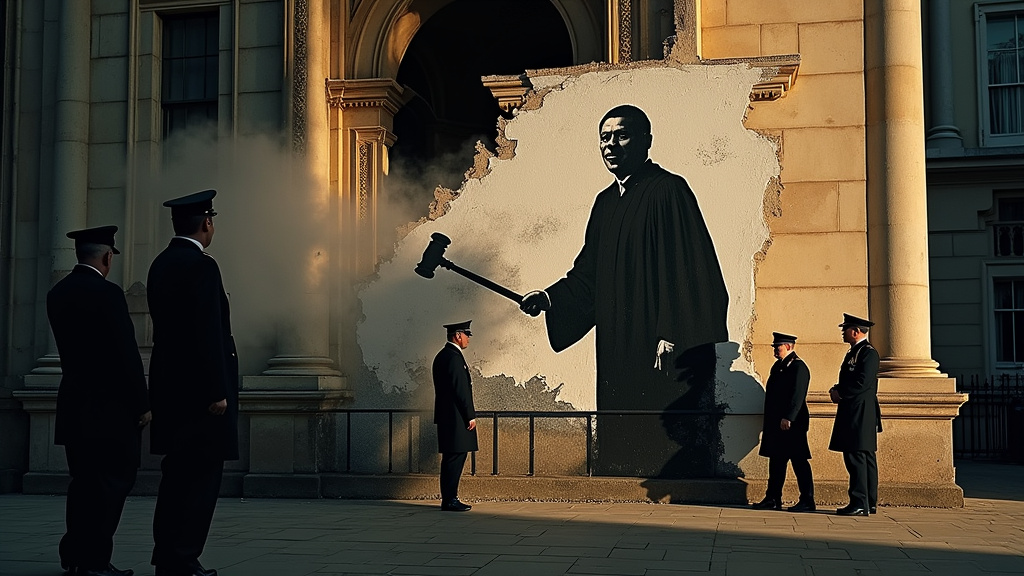More than two dozen individuals were apprehended by law enforcement in central London on Saturday, July 5, 2025, following a demonstration in support of the activist group Palestine Action. The arrests, made on suspicion of terrorism offenses, occurred just hours after the controversial proscription of the group took effect under Britain’s anti-terrorism laws.
The demonstration took place in Parliament Square, a location frequently used for protests near key government buildings. Participants gathered despite the newly enacted ban, holding various signs, some notably bearing the message, “I oppose genocide. I support Palestine Action.”
The Proscription and Legal Challenge
The ban on Palestine Action represents a significant development in the UK’s approach to activism concerning the Israeli-Palestinian conflict. The group was officially proscribed under anti-terrorism legislation, a measure that elevates activities in support of the group to criminal offenses.
This proscription followed intense scrutiny of the group’s actions. Authorities cited incidents where activists allegedly caused extensive damage, estimated to be around £7 million, equivalent to approximately $9.4 million. This financial impact appears to have been a critical factor in the decision to invoke terrorism powers against the organization.
Palestine Action had mounted a last-minute legal challenge in court on Friday, July 4, 2025, seeking to block the ban’s implementation. However, their bid was unsuccessful, clearing the way for the proscription to take effect precisely at midnight, hours before Saturday’s planned protest.
Law Enforcement Response and Justification
In the wake of the ban, law enforcement authorities were poised to enforce the new legal status of Palestine Action. The Metropolitan Police confirmed the arrests made at the Parliament Square protest. A spokesperson for the force stated that supporting a proscribed group is a criminal offense under UK law, providing the legal basis for the detentions.
The decision to arrest individuals on suspicion of terrorism offenses underscores the gravity with which the authorities now view support for Palestine Action. This classification places the group in a category alongside organizations considered to pose a direct threat to national security, a designation typically reserved for extremist or paramilitary bodies.
The police operation aimed to disperse the protest and prevent further activities deemed illegal under the new ban. The significant number of arrests – exceeding 20 individuals – signals a firm stance from the authorities regarding the enforcement of the proscription.
Background to the Ban
The move to ban Palestine Action has its roots in a series of high-profile disruptive actions attributed to the group. These actions have often targeted defense companies and institutions perceived as being linked to the Israeli military or defense industry.
While activists characterize their actions as legitimate protest against complicity in perceived human rights abuses, authorities and targeted companies have described them as vandalism, criminal damage, and disruption. The scale of the alleged damage, specifically the estimated £7 million ($9.4 million) figure, was a prominent detail cited by the government in justifying the use of counter-terrorism powers for the proscription.
Placing an organization on the list of proscribed terrorist groups in the UK is a process overseen by the Home Secretary and subject to parliamentary approval. It grants police and other agencies wide-ranging powers, including the ability to arrest individuals for membership or support and to seize assets.
Implications and Reactions
The proscription of Palestine Action has been met with varied reactions. Supporters condemn the ban as an attack on the right to protest and freedom of speech, arguing that the group’s actions, while sometimes disruptive, do not constitute terrorism.
Opponents and those targeted by the group’s activities, however, argue that the ban is necessary to prevent criminal damage and disruption and to protect businesses and institutions. The government’s position, reinforced by the arrests, suggests a determination to use the powers available under anti-terrorism legislation to address the group’s activities.
The situation in central London on Saturday highlights the immediate consequences of the ban taking effect. The presence of protesters expressing support despite the legal risks underscores the contentious nature of the proscription and the depth of feeling surrounding the issues Palestine Action seeks to highlight. The arrests on suspicion of terrorism offenses signal a significant escalation in the legal consequences for individuals associated with or supporting the group.





